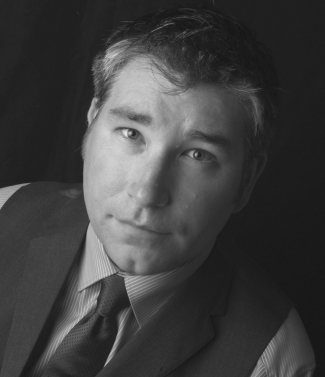
What a paraplanner passport might look like
by Damian Davies on 15·01·2019
With so many different expectations, this simple document can provide a snapshot of the type of paraplanner behind the CV.
I am finding paraplanners and their employers are starting to get more and more divided, as neither really understands what the other does for them.
On the one hand, I am speaking to business owners who say, "I really like working with my paraplanner but I feel they aren't doing as well as they could". On the other, I have applicants telling me, "I like my boss but I just don't feel they appreciate what I do".
The problem is that neither side is communicating well about what they expect. The employer has every right to determine what they want a paraplanner to be and do. The paraplanner should be able to have a career path that suits them as individuals.
Some have argued a paraplanning standard is the panacea. I am not against this but I do not think it is the sole solution, as the role can and should be so many things.
For instance, a highly technical financial planner might need a highly organised paraplanner who is better at keeping a file straight than being the most technically strong. They can keep the planner tidy and organised and help with some research and report writing, but they will not need to be the most hardcore technician.
And what about the personable, relationship-driven adviser? They may work better with a well-qualified, highly experienced paraplanner who can act as a critical friend to them. They can keep the adviser clean from a compliance and technical perspective.
A CV and interview on their own will not really help the adviser establish the type of paraplanner they are getting. Most CVs focus on measurable facts like qualifications. The skills an employer needs from a paraplanner are often not quantified. I suggest paraplanners start to build themselves a personal record to accompany them on their career. A "paraplanner passport" that is separate to the CV.
As well as providing the advice firm with extra information about the paraplanner, they can use it to probe the adviser about how it can be built on while working with them.
Here are a few ideas as to what could be in the passport:
Time
Time recording is vital to
demonstrating efficiency. An elegant summary of a working year can
help the paraplanner show their strengths. Productive people also
tend to be well-organised, so this will evidence good diary
management.
This can be broken down into time spent on client-facing tasks, research tasks and admin tasks. How the remaining time is spent will demonstrate the paraplanner's proactivity.
Without time records, an employer can feel they are not getting the most from a paraplanner, as they do not realise how long some tasks take. At the same time, a paraplanner cannot fully demonstrate their value in terms of productivity. Firms that do not time record tend to be the ones that do not appreciate each other as well as they should.
Quality
Time measures are nothing if they
are not cross-referenced to quality. Most businesses have
mechanisms of grading work. Summarising this will help a
paraplanner demonstrate how good theirs is.
If a paraplanner is producing enormous volumes of work but of poor quality, they may have been given the wrong types of tasks. Paraplanners should use these measures to get to the right place.
CPD
Continuing professional development
helps a paraplanner demonstrate what and how they learn. As an
employer, it is more useful than a list of
qualifications.
A summary of lifetime CPD and the last 12 months' worth will help demonstrate whether they are a hardcore technician or someone more practical.
Feedback
Feedback is the only way to develop
professionally. Recording and summarising this in a passport will
help prove paraplanners' quality. Feedback from clients can be even
more powerful.
Client
meetings
It is important for the employer to
know how the paraplanner deals with clients. Some paraplanners just
do not like speaking with clients and others love it.
It is essential paraplanners do not end up in a role where they are expected to talk to clients if it is something they do not enjoy. Likewise, a gregarious relationship-driven paraplanner will need to find a role that suits the character traits.
The passport does not need to be anything more than a simple, one-page summary, providing a snapshot of what type of paraplanner sits behind the CV (see image).
A great paraplanner needs to display both their knowledge and skills. Knowledge usually comes from exams and experience but skills rarely have a measure. The passport could be the solution to this shortfall in expectations.
